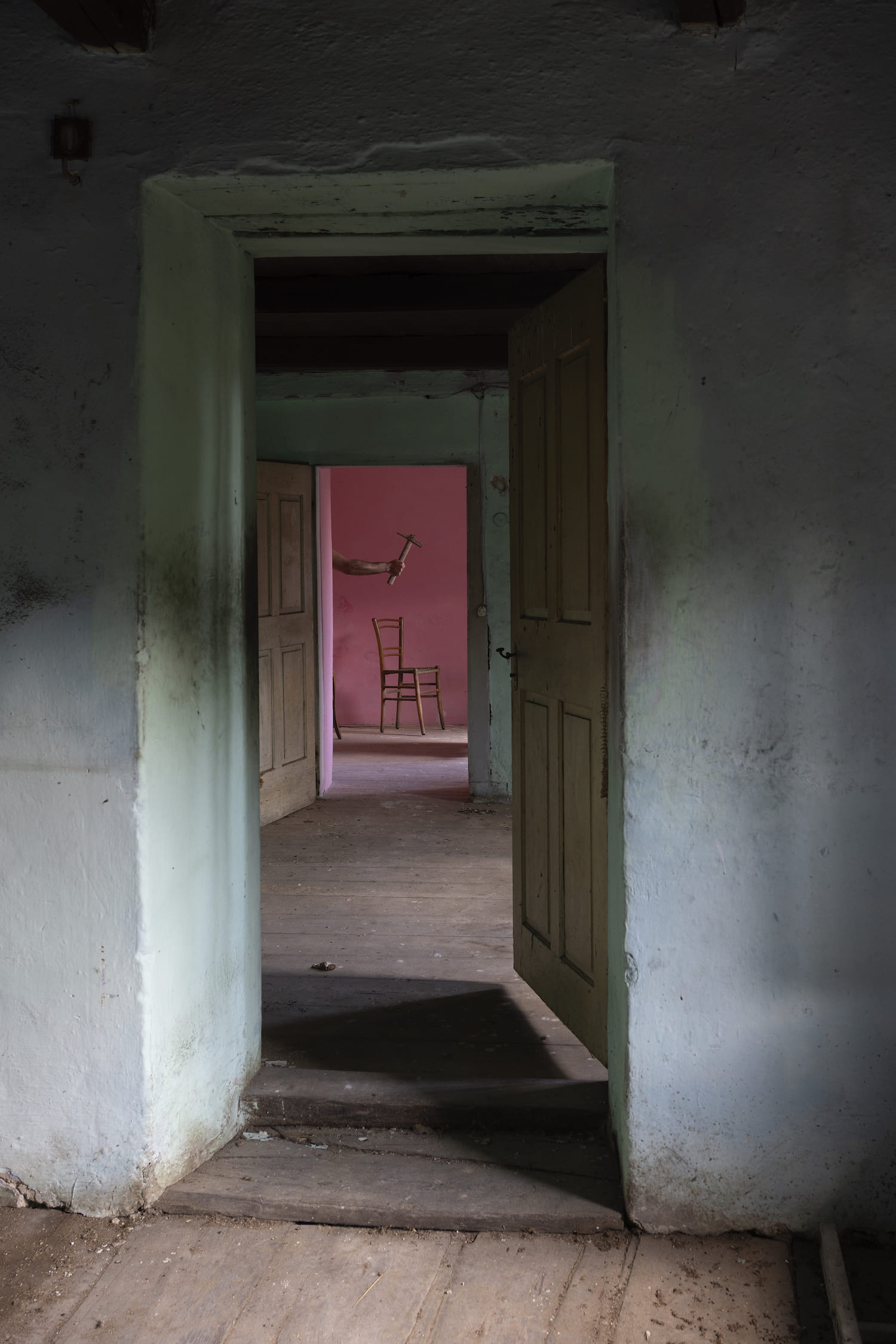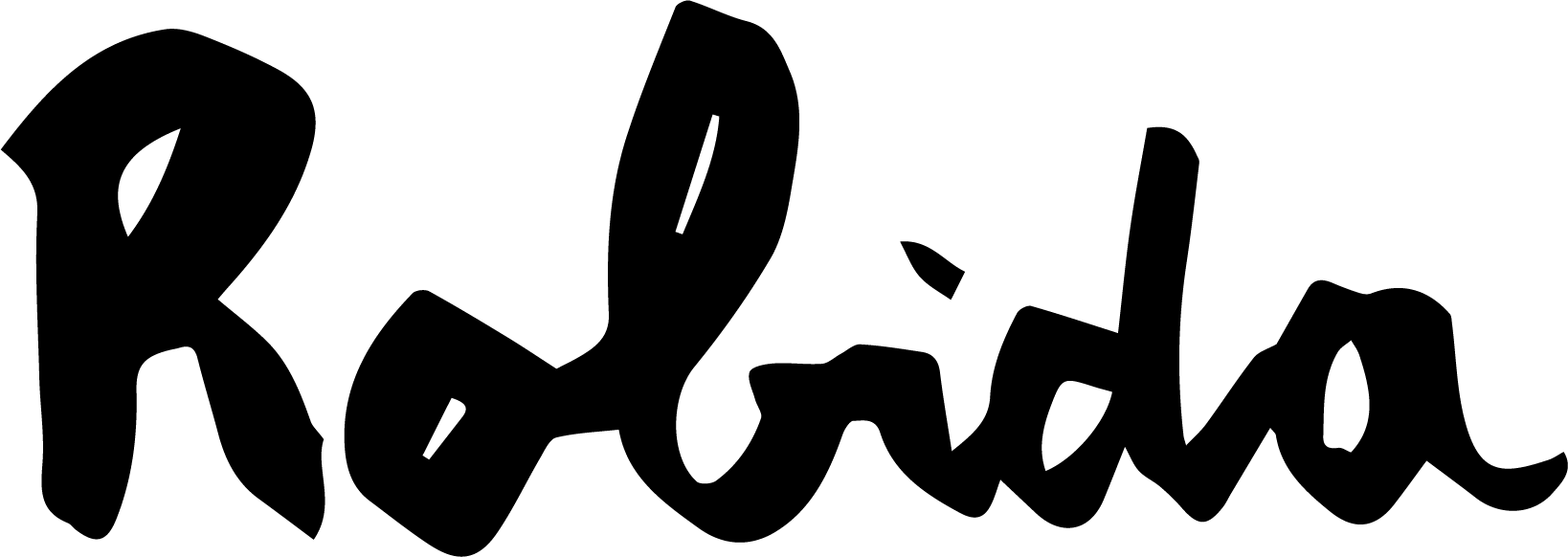estado límbico
Thoughts after Robida went to Porto
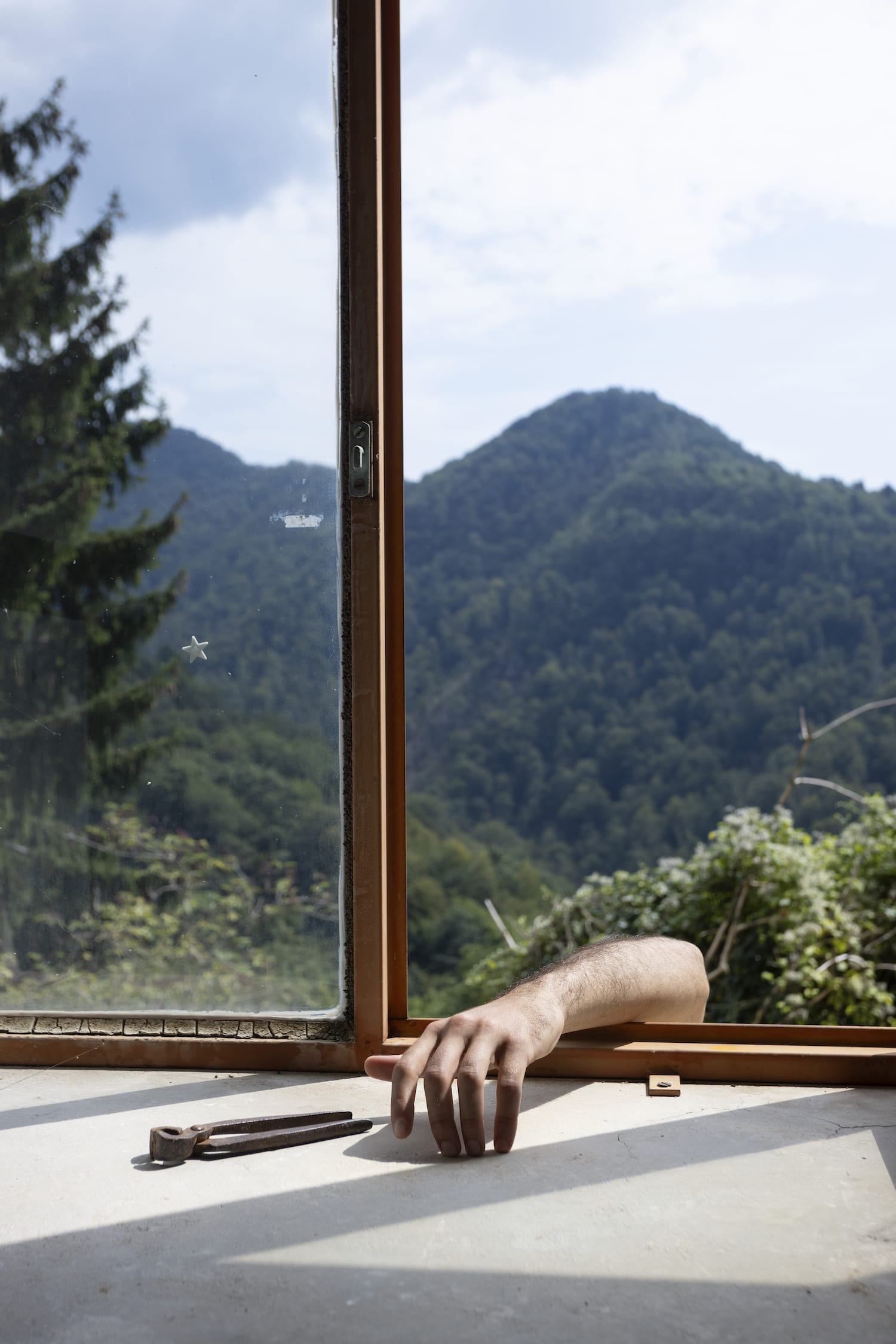
January 2024 we flew to Porto for the estado límbico inauguration (and for the presentation of Robida 9 to our portuguese friends). This was the climax of an artistic investigation hosted by Robida and carried out by fahr 021.3 in Topolò. Originally, this photo essay spawned from the 2022 edition of the Academy of Margins, under invitation of Antônio Frederico Lasalvia. In 2023 the project was revisited thanks to the support of Ágora - Cultura e Desporto do Porto, E.M., S.A. The result was registered by a homonymous exhibition and publication (available at materia prima).
At the opening event of estado límbico in Porto, the conversation held between Hugo Reis, Filipa Frois Almeida, Elena Rucli, Aljaž Škrlep and me (Antônio) was not recorded, so I would like to refer from memory to something Aljaž said during the inauguration and that stuck to my head.
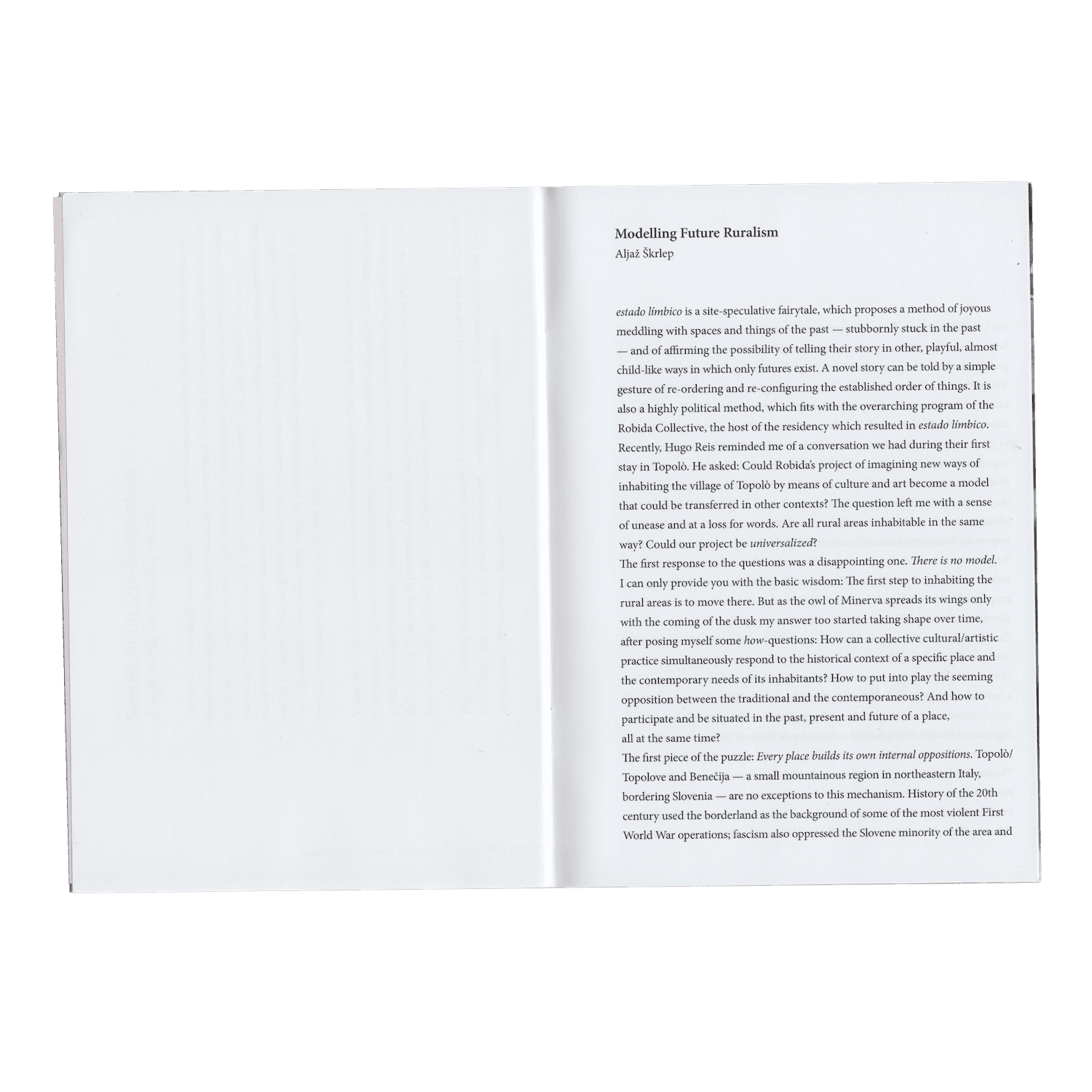
After being invited to write a text for the publication (Modeling Future Ruralism) and going through the work fahr did, Aljaž commented that, in a certain sense, this project was exactly what he seeked to do with his own practice: to come up with other imaginaries about ruralities today. As a purposeful dweller of Topolò, he wished to envision alternatives to the way we live - not only one, but a multitude of them. His statement left me wondering: how and why does estado límbico mobilize other imaginaries?
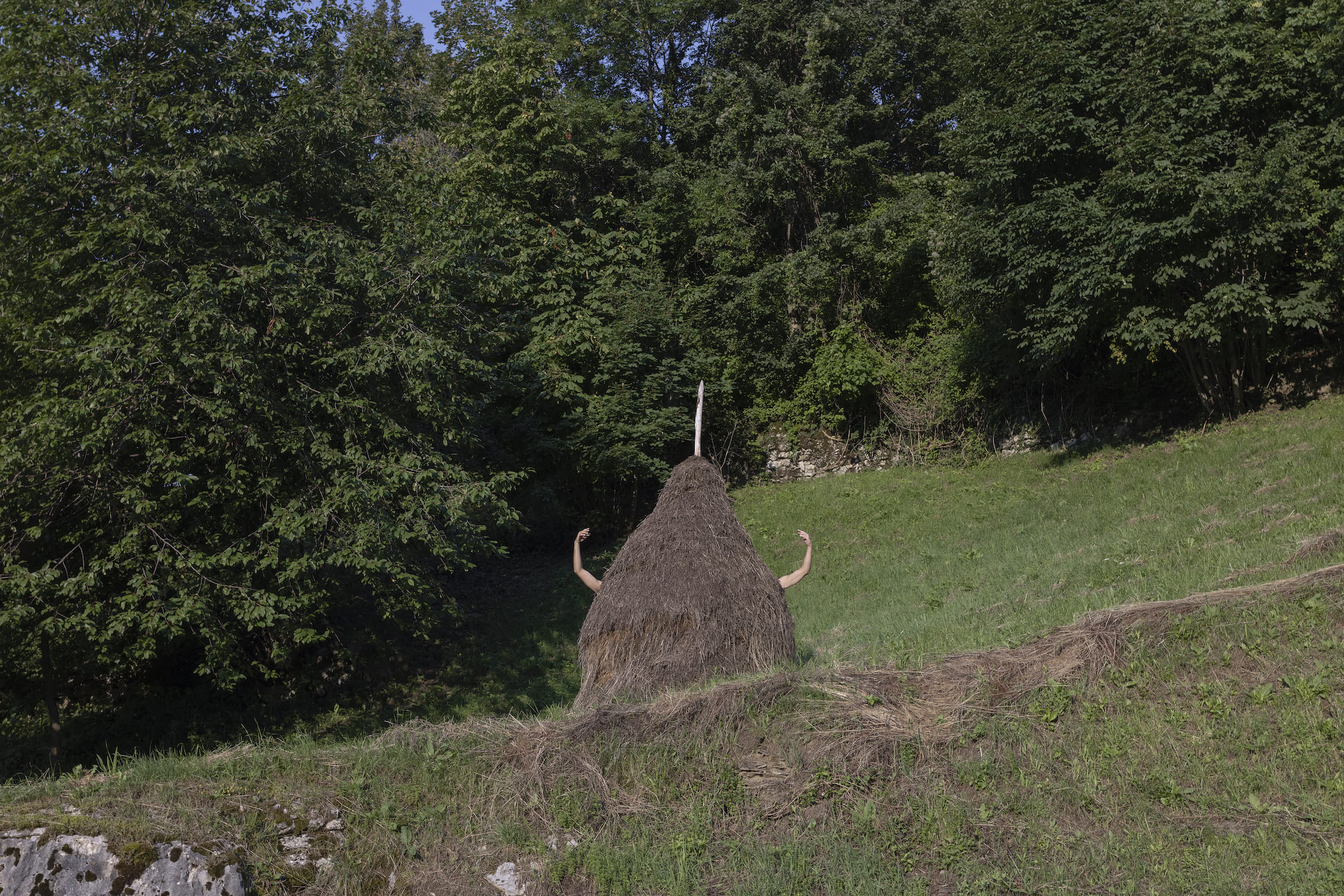
Throughout the crooked roads and overgrown fields of Topolò, there is a very real sense of a past life whose only remaining witness is material culture. If people's stories depend on speaking tongues to circulate, the everyday stuff of past lives fades away at a delayed pace. For the delight of archeologists, artifacts such as rusty tools, peeling facades and broken jars outlive their makers by many generations. By contrast, what vanishes from the face of the earth is the situated meaning of all things left behind.
For 10 years now, the Robida Collective has obstinately decided to put down roots among abandonment and promote work that in some way or another dialogues critically with local reality. For this group, interest in curating artistic works and residencies lies precisely in the ability to raise questions that directly relate to the specificities of local circumstances.
As short-term residents in Topolò, fahr approached this concern as an opportunity for a radical imaginary reinvention. Faced with an untenable accumulation of past lives that permeate the village, we felt an overwhelming sense of symbolic freedom. So we turned the quest for site-specificity upside down and asked not what past this place once had? but rather what radical futures were never born here?
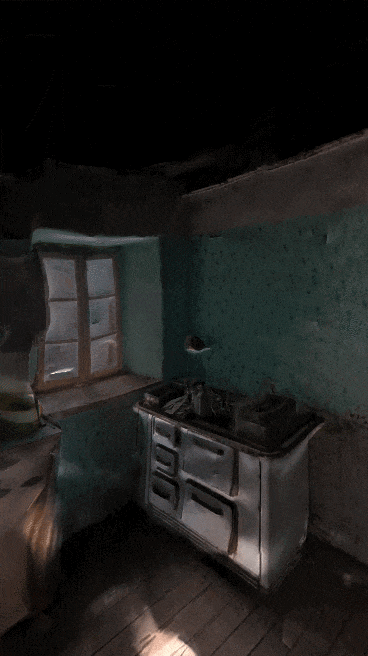
Imagistically, both the pictures of Filipa and the photogrammetry of Hugo expose another layer to ordinary reality, which can be interpreted as a breach into otherness. On my part, since I was mainly concerned with the theoretical aspect, this work was an opportunity to think about whatever we found by bringing into imagination what simply never existed before. As a lively twist to Site-Specificity, we decided to call this conceptual move Site-Speculation, which is described in A provisional manifesto in two parts.
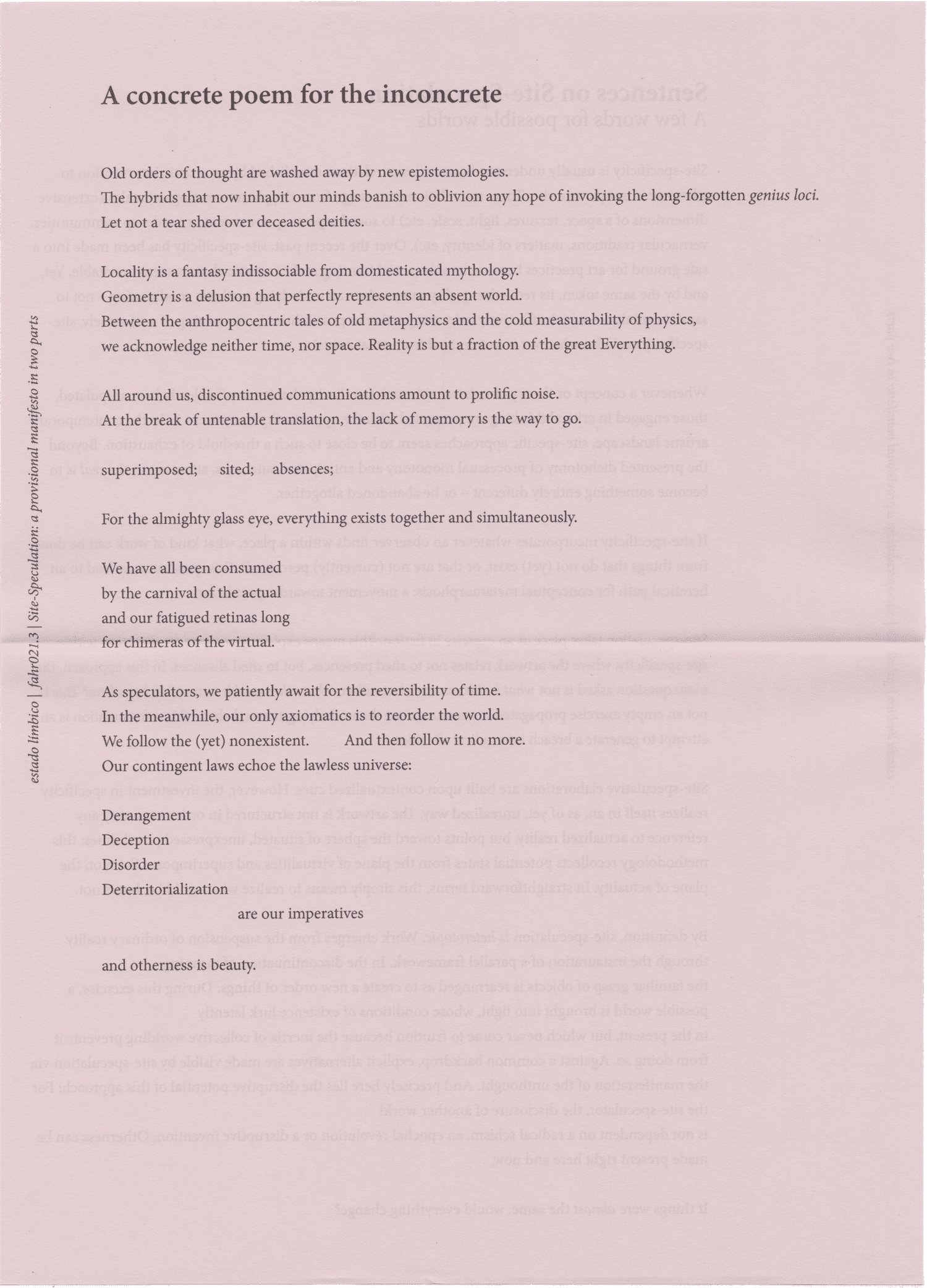
What do we make out of accessible matter with inaccessible meaning?
